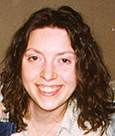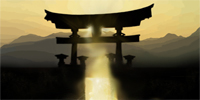|
 Valentina Pagliai Valentina Pagliai
Anthropology
Ph.D. UCLA
e-mail: vpagliai@hunter.cuny.edu
"Language is not just a means of communication: it is first of all art, it is beauty, and that it is so even for the more humble social strata is seen in the smile aroused by the one who is not expressing himself well in a language or dialect which is usually foreign to him. ... The expression is never definitive, since the relationships of thought change continually, the ideal of beauty always changes, and only a spoken language can find in itself, or in other languages, the new shades of meaning, the new verbal links that are adequate to the new needs." (Antonio Gramsci)
My training is in linguistic and cultural anthropology, but I consider myself a cross-disciplinary scholar, as my studies have often led me to other fields, like European studies, folklore, gender studies and sociology. My main areas of research are
racial formation processes in discourse, immigration, art and politics, and the performance of social, gender and ethnic identities. I focus on everyday interactions, argumentative language, and verbal duels.
I was born in Tuscany, and I came to the United States for the first time as an undergraduate. I flew to California knowing practically no English, hosted by friends I had met as international students to my university, in Padua. I remember that what struck me about the US was the emptiness of the city streets: nobody was walking around the suburban San Diego neighborhood where I found myself. Without being enrolled I sat through courses at UCSD, working for meals in the student cooperatives, spending my days in the campus libraries, and week after week learning the language. Soon I discovered the stereotypes about Italians, an image of myself I had never known. It felt like looking in a mirror and not recognizing myself anymore. From this experience as a person straddled between two worlds emerged my interest in identity and transnational encounters. At my graduation in Italy, I decided to be an anthropologist, so I crossed the ocean again to pursue a Ph.D. at UCLA.
In Los Angeles I met the Italian American community, a community where I felt welcomed as a lost daughter, and I started my first fiedwork research with them. Understanding their history, the way they saw themselves, was like discovering a part of my own history that schools had never taught me. It spoke of poverty and the sorrows of forced migration, about reconstructing a sense of belonging in a new land. Next, I wanted to see how that same sense of self and belonging was created in Tuscany. Fascinated by verbal art traditions and by their performance, I began fieldwork on the Contrasto, a form of Tuscan verbal duel. It led me to write about identity, but also the performance of masculinities and femininities, the imagination of hegemonic and subaltern aesthetic systems, language ideologies and the political interests that shaped the creation of the Italian language, and the connections between art and power.
The years passed. Every time I returned to Italy in summer, I saw it changed. I could not recognize the names of famous singers and actors anymore; I did not know the recent news, the names of politicians, or the schedules of busses and trains. Italy was now part of Europe and the streets were filling with the diverse languages and faces of millions of immigrants. Every year I saw more cultural diversity, hybrid music traditions emerging, new foods sold in groceries. But every year I also saw growing racism against those immigrants. History was coming full circle: the Italians that once left in despair for new shores of hope were now trying to make sense of becoming a receiving country. This led me to my new work on racialization processes and immigration, and to new fieldwork seasons in Tuscany. I started collaboration with those institutions, associations and NGOs fighting an uphill battle against discrimination, helping the immigrants ease themselves into a new country that will become theirs, just as the US has become mine.
What next? I feel there is a need to compare and contrast, in matter of immigration and racism, the Italian and European context with the US one. Scholars and policymakers on the two sides of the Atlantic often have different perspectives, different insights and experiences. I want to help create a bridge between them. My work with the Contrasto artists will continue too, and I can see it converging in the future with my work on immigration, as the Italian traditional art forms mix with the genres brought by the immigrants to create new art forms, new aesthetics and through them, new forms of belonging together, new pathways to common citizenship. |


CUNY Hunter College
Department of Anthropology
695 Park Avenue
New York, NY 10065
Telephone: (212)772-5410
UCLA Department of Anthropology
375 Portola Plaza
341 Haines Hall, Box 951553
Los Angeles, CA 90095-1553
Ph: 310-825-2055
Fx: 310-206-7833
|

![]() Last updated 8/28/2011
Last updated 8/28/2011